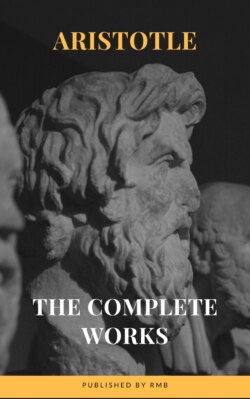Читать книгу Aristotle: The Complete Works - Aristotle - Страница 125
На сайте Литреса книга снята с продажи.
20
ОглавлениеNow, it is clear that if the predications terminate in both the upward and the downward direction (by ‘upward’ I mean the ascent to the more universal, by ‘downward’ the descent to the more particular), the middle terms cannot be infinite in number. For suppose that A is predicated of F, and that the intermediates-call them BB’B”… -are infinite, then clearly you might descend from and find one term predicated of another ad infinitum, since you have an infinity of terms between you and F; and equally, if you ascend from F, there are infinite terms between you and A. It follows that if these processes are impossible there cannot be an infinity of intermediates between A and F. Nor is it of any effect to urge that some terms of the series AB… F are contiguous so as to exclude intermediates, while others cannot be taken into the argument at all: whichever terms of the series B… I take, the number of intermediates in the direction either of A or of F must be finite or infinite: where the infinite series starts, whether from the first term or from a later one, is of no moment, for the succeeding terms in any case are infinite in number.
